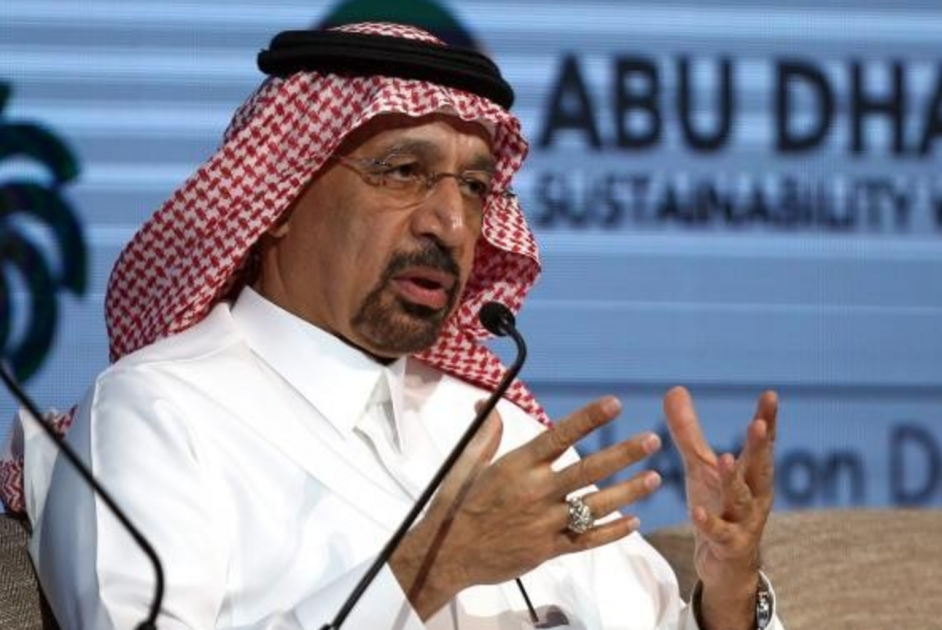
KSA to launch $30b-$50b renewable energy program
Saudi Arabia will launch in coming weeks a renewable energy program that is expected to involve investment of between $30 billion and $50 billion by 2023, Saudi Minister of Energy, Industry and Mineral Resources Khalid Al-Falih said on Monday.
Falih, speaking at an energy industry event in Abu Dhabi, said Riyadh would in the next few weeks start the first round of bidding for projects under the program, which would produce 10 gigawatts of power.
In addition to that program, Riyadh is in the early stages of feasibility and design studies for its first two commercial nuclear reactors, which will total 2.8 gigawatts, he said.
“There will be significant investment in nuclear energy,” Falih said.
Falih said Saudi Arabia was working on ways to connect its renewable energy projects with Yemen, Jordan and Egypt.
“We will connect to Africa to exchange non-fossil sources of energy,” he said, without elaborating.
Falih also said that OPEC and non-OPEC producers are unlikely to extend their agreement to cut oil output beyond six months, because of the level of compliance with the deal and the rebalancing of the market.
However Falih, speaking to reporters on the sidelines of an industry event in Abu Dhabi, also said producers would reassess the situation and extend the agreement if necessary.
“We don’t think it’s necessary given the level of compliance…and given the expectations of demand,” he said.
“My expectations (are)…that the rebalancing that started slowly in 2016 will have its full impact by the first half.”
Falih said: “Based on my judgment today it’s unlikely that we will need to continue (the agreement).
Demand will pick up in the summer and we want to make sure that the market is supplied well. We don’t want to create a shortage or squeeze.
“The extension will only happen if there is a need.”
OPEC decided on Nov. 30 to cut output. The producer group, together with 11 other countries including Russia, is seeking to reduce supply by about 1.8 million barrels a day. The cuts took effect on Jan. 1 and are to last through June.
Saudi Arabia has cut production to less than 10 million barrels a day, below its targeted level, and is currently producing at a 22-month low, Al-Falih said.
The world’s biggest oil exporter had agreed to trim output by 486,000 barrels a day to 10.058 million as part of the global accord on supply.
“We will strictly adhere to our commitment and be at our cap, or as is the case now, slightly below it,” Al-Falih said Monday.



























